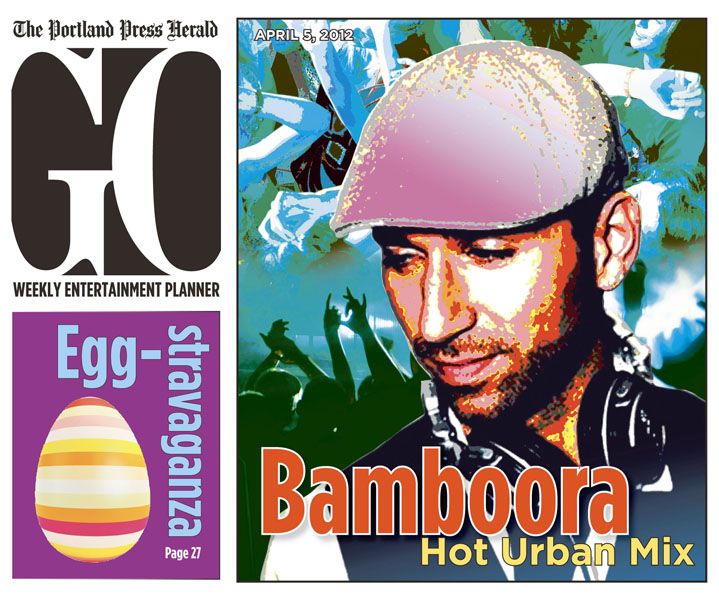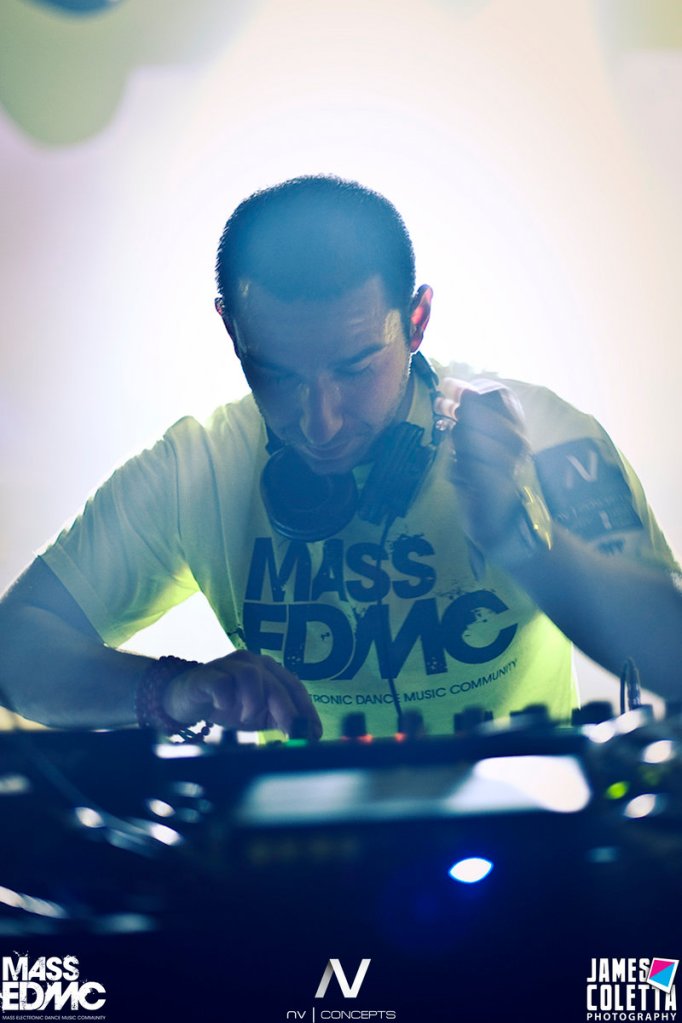Bugra Akaktan doesn’t make music in the traditional sense.
He finds it, tweaks it, pairs it with complementary sounds, and then tries to figure out who wants to hear it and when.
Akaktan, who performs under the name Bamboora, is part of the dance/electronic music DJ scene growing around the country. Based in Boston, the 28-year-old native of Istanbul, Turkey, practices his craft at clubs in the Hub and tours around the country.
One such tour stop will be Saturday at Port City Music Hall in Portland, where Akaktan will be the headlining performer during a six-hour dance party — yes, six-hour — that will also feature 10 or so local DJs.
For the night, Port City will resemble an underground urban club or industrial warehouse rave. There will be two stages, laser lights, go-go dancers, glo-sticks, T-shirt vendors, black lights and other party effects. Akaktan will do a two-hour set near the end of the night.
Akaktan doesn’t really fit into any specific musical genre, because he can use a wide range of music and sounds — from classic rock to electronica — as long as people will dance to it.
And getting people to dance is really part of his art.
“What I try to do is create a continuous action of music for the crowd,” said Akaktan, 28. “A certain energy builds up, depending on what I play and when. This is a competitive business, and so an important part of it is the surprise element, playing unheard music or old music they didn’t expect to hear.”
Akaktan said finding music is how he spends the bulk of his time when’s not performing. He searches online and calls musicians and producers, always looking for something new and different.
He hopes what he does will eventually lead to him producing his own music, using electronics and found sounds. But for now, he makes the most of other people’s produced music.
The Bamboora show at Port City Music Hall is part of the Congress Street club’s efforts to bring in more electronic music and DJ-based shows, said Rob Evon, the club’s manager. Evon recently got a late-night entertainment license for the club, so shows can go on until 2 a.m. (Though alcohol can’t be sold that late.) Evon says he will schedule some of the dance and electronica shows to start at midnight.
On March 29, Port City hosted DJ Figure in its first late-night show. The opening acts started at 10 p.m., but the headliner didn’t go on until midnight. The Bamboora show will be similar, with doors opening at 8 p.m. but the main attraction coming on much later.
The late starts help create more of a dance club or rave vibe, and they also help fill a void in town for late-night, after-hours entertainment.
Evon said his club has lost out on concerts to the larger State Theatre, located just down Congress Street, ever since that venue reopened more than a year ago. So if he can’t get the same acts playing the State, Evon said he will bring in some acts that probably won’t play the State — like dance music DJs — and schedule shows that are late enough that they don’t bump against State Theatre shows.
“This way, people can transition from one venue into ours and still have time for a decent set of music,” said Evon. “It’s an opportunity for us to fill a niche and make up for some loss of business.”
The Bamboora show is being staged by Maine Electronic Entertainment, a business which started as a collective of local DJs and has evolved into an event-planning company with a focus on dance parties. The company has a stable of six or seven DJs that it uses regularly who do events ranging from weddings and festivals to all sorts of dance club events, said Derek Giusto, one of the company’s managers.
For the Bamboora show, Maine Electronic Entertainment will bring in vendors that will sell glo-sticks, T-shirts and sunglasses, as well as go-go dancers and all sorts of light effects, including black lights and lights activated by sound.
“We want people at an event to see it, feel it, hear it,” said Guisto. “We want people to be visually satisfied as well.”
Akaktan first became interested in dance music while growing up in Istanbul, and became even more interested when his family moved to the Chicago area when he was 16. He had older cousins who would would play dance tracks and DJ stuff for him, so he soon started fooling around with music and equipment on his own.
“I was just a bedroom DJ, but friends started saying, ‘Why don’t you try to get paid for that?’ ” said Akaktan. “I was the kid playing music at the parties.”
After high school, he started getting gigs at clubs around Chicago. Then he had some friends who moved to Boston, and he decided to move there and keep working.
Akaktan said a lot of what he does at a club is pretty spontaneous. From practicing, he knows what sounds he likes to use together and what tracks fit well with others. He might even go into a gig with a sort of setlist in his head of what he wants to play.
But exactly how he plays it and when depends a lot on the crowd. Unlike a lot of other musicians, the crowd’s reaction is really part of his performance.
That’s why it’s called dance music.
“There are certain things I’ll be thinking about playing, but I never set anything in stone,” said Akaktan. “It’s all about reading the crowd.”
Staff Writer Ray Routhier can be contacted at 791-6454 or at rrouthier@pressherald.com
Twitter: RayRouthier
Send questions/comments to the editors.





Success. Please wait for the page to reload. If the page does not reload within 5 seconds, please refresh the page.
Enter your email and password to access comments.
Hi, to comment on stories you must . This profile is in addition to your subscription and website login.
Already have a commenting profile? .
Invalid username/password.
Please check your email to confirm and complete your registration.
Only subscribers are eligible to post comments. Please subscribe or login first for digital access. Here’s why.
Use the form below to reset your password. When you've submitted your account email, we will send an email with a reset code.